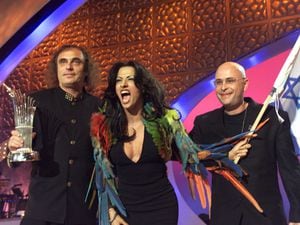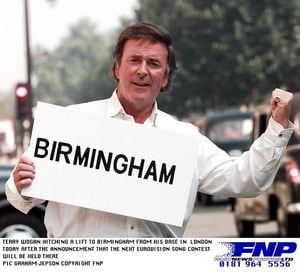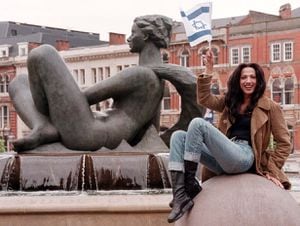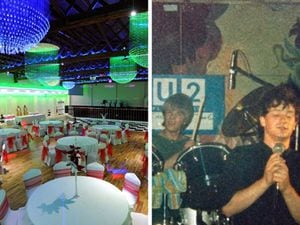The last Eurovision in the UK was the night it put Birmingham on the map
One of the biggest moments in Eurovision history happened right here in the West Midlands.

Birmingham’s National Indoor Arena was chosen to host the event in 1998 after the UK’s victory the year before through Katrina and the Waves with Love Shine a Light.
It was the last time Britain won the contest and the NIA put on a show worthy of Eurovision. It had beaten venues in Belfast, London, Manchester, Cardiff and Glasgow to win the right to stage the event and was one of the first to take the show from a theatre to an arena in front of an audience of thousands..
The NIA show was the first time since 1982 that the Eurovision Song Contest was staged in the United Kingdom.

Back then a more modest event was held in Harrogate, after Bucks Fizz’s triumph in Dublin a year earlier with Making your Mind Up and the memorable skirt-pulling trick
The 1998 event was ground-breaking in that voting was organised through a ‘televote’ for the first time. That meant it was largely the European public choosing the winner rather than a panel of judges taken from the music industry.
It was also a taboo-breaking year for the contest, seeing the rise of Israeli transsexual Dana International. Her song Diva was an eventual winner and her story advanced awareness about transgenderism. Dana International, who was born a boy but identified as a girl from the age of 13, beat the UK into second place, with Imaani’s Where Are You bringing in 166 points – a tally a present-day UK entry can only dream of.
The 1998 contest from Birmingham culminated in one of the most thrilling voting sequences for years.

As always, the voting did not go entirely to plan. There was a problem with the Spanish televote as Spanish voters had awarded 12 points to Germany – but while announcing the points, the 12 points went to Israel. It led to a scramble to re-evaluate the votes, which still led to an Israeli victory.
Televoting was so new that not all countries could use it for voting. Countries that did not have a fully functional telephone system were still allowed to vote through the national juries.
Eurovision is so much more than one night of music and, while the semi-final shows hadn’t been introduced then, there was still a long build up with the acts visiting attractions in Birmingham and presenter Terry Wogan doing his bit to promote the host city.





